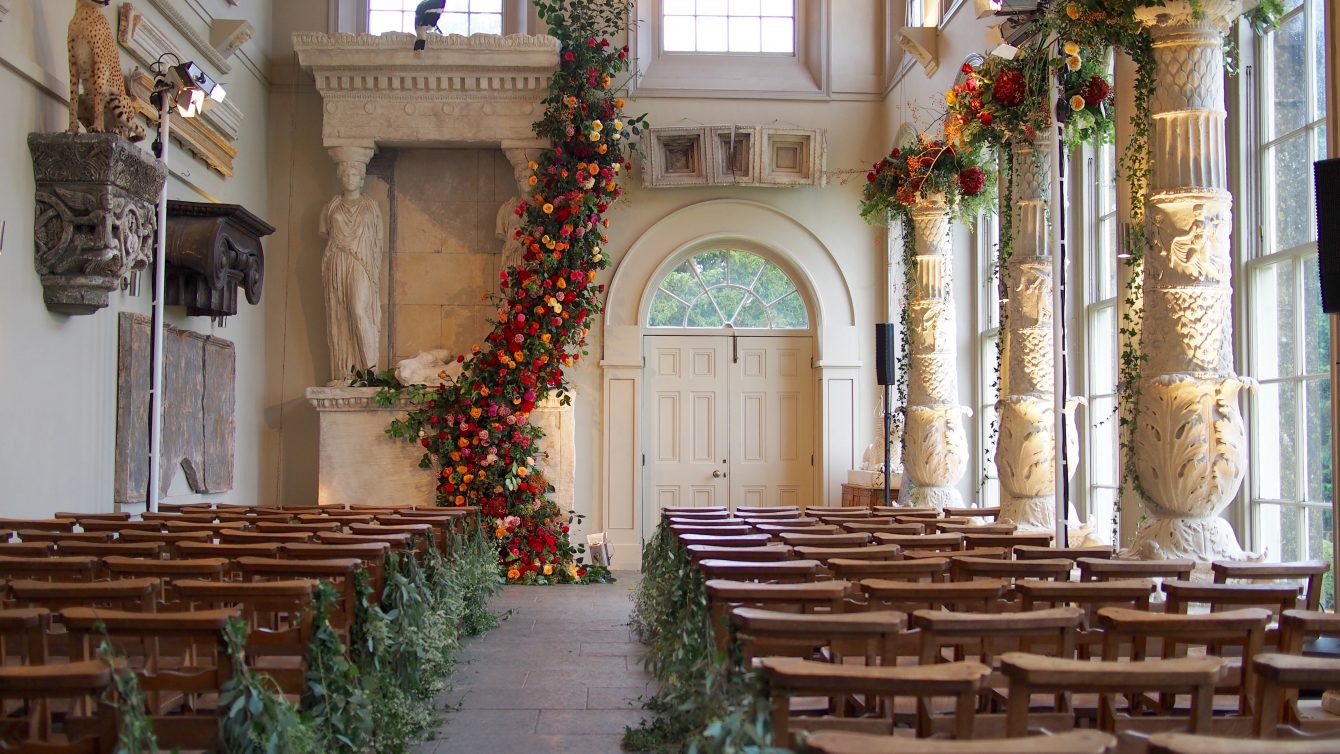ลำดับตอนที่ #1
คืนค่าการตั้งค่าทั้งหมด
คุณแน่ใจว่าต้องการคืนค่าการตั้งค่าทั้งหมด ?
ลำดับตอนที่ #1 : คาบวิชาของอาจารย์อารีย์ (Ari)
สวัสี้า นัเรียนาวอารีเนเอร์ทุนนน!!!
Hello, Arinator students!!!!
วันนี้เราะมาเรียนรู้ภาษาอัฤษาเพลอุรูนสวยอเรา
Today, we're going to learn English from songs of our gorgeous teacher.
เราะเลือเพลาสออัลบั้มล่าสุอุรูอารีย์ ึ่นั้น็ือ อัลบั้มสวีทเทนเนอร์ และ อัลบั้มแ้ิ้ว เน็ส์ นั่นเอ
I'm going to choose the songs from Ariana Grande's two new albums which are "sweetener" and "Thank you, next".
พร้อมันรึยั !!!!
Are you ready?
ถ้าพร้อมแล้ว ไปลุยันเลยยย
If you're ready, let's get started!
1. มาเริ่มันที่บทเพลแรที่มีื่อว่า "หยาฝน"
Let's begin with the first song called "Raindrops (An Angel Cried)"
When raindrops fell down from the sky
The day you left me, an angel cried
Oh, she cried, an angel cried
She cried...
ราวนี้มาเป็นเรื่อำศัพท์ัน่อน
Let's start with the vocabulary.
Raindrops (noun(ำนาม)) = หยานำ้ฝน/ หยนำ้ฝน / เม็ฝน
แ่ถ้าเป็นรีที่เียนแยันเ่น
Rain drops (noun + verb) = ฝน
วามหมายอเพลมีันี้
The meaning of this song in Thai.
เมื่อหยาฝนลมาาท้อฟ้า
วันนั้นทีุ่าันไป นาฟ้า็ร้อไห้
โอ้ เธอไ้ร้อไห้ นาฟ้าไ้ร้อไห้
เธอร้อไห้....
โยรวมอาะหมายถึาราไปอใรสันหนึ่ท่ามลาสายฝน
และนั้น็เหมือนนาฟ้าร่วมเสียใและร้อไห้ับเธอ
หลัไวยาร์ที่วรำ
Grammar rules that you should take note.
Past Simple Tense : Subject + Verb (2)+ object.
For example (ัวอย่า) : You left me. (ุไ้ทิ้ันไป)
รี Past Simple Tense ะใ้เมื่อเหุาร์นั้นผ่านไปแล้วและบไปแล้วในอี
สิ่ที่เราสามารถเรียนรู้ไ้าเพลนี้ือ วามสอล้อันระหว่า tense ที่นำมาใ้
What we can learn from this song is the consistency of the tense that was used.
ะเห็นไ้ว่า verb หรือริยาที่ใ้ในบทเพลนี้นั้นเป็นริยา่อสอหรือริยาในอีทั้หม
เ่น fell (v2) มาา ำว่า fall (v1), left (v2) มาาำว่า leave (v1), cried(v2) มาาำว่า cry(v1)
Notice that all verbs that were used in this song are in the past simple tense such as fell, left, and cried.
ึ่ะแ่่าาภาษาไทยที่ไม่ว่าเหุาร์นั้นะเิึ้นเมื่อไหร่็าม ริยา็ะไม่ผันรูปไปามเวลา แ่ในภาษาอัฤษนั้นมีในเรื่ออาลเวลาที่ทำให้ริยาผันรูปไป
Unlike Thai Language, that verbs don't change depend on the time of each incident appears, the verbs in English language do change according to the time of the incident occur.
2. เพล่อไปื่อว่า "ทุเวลา"
Our next song will be "Everytime"
I get tired of your no-shows
You get tired of my controlThey keep telling me to let go
But I don't really let go when I say so
I keep giving people blank stares
I'm so different when you're not there
It's like something out of Shakespeare
Because I'm really not here when you're not there
วามหมายอเพลมีันี้
The meaning of this song in Thai.
ันเบื่อับารไม่แสออออุ
ุเอ็เบื่อับวามเ้าบารอัน
นอื่น็บอให้ันปละ
แ่ัน็ปลไม่ไ้ะทีเียว ทั้ๆที่็พูว่าั้น
ันมัะเหม่อลอย่อหน้าผู้น (ใไม่อยู่ับเนื้อับัวอะไรประมานั้น)
ันแ่าไปมา เมื่อุไม่ไ้อยู่รนั้นับัน
มันเหมือนับบทวีที่ออมาาบทประพันธ์อเ็สเปียร์
เพราะันไม่ไ้อยู่รนี้ริๆ ถ้าุไม่อยู่รนั้นับัน
(อารม์ประมาว่า ใลอยเพราะเาไม่อยู่รนั้น้วย ัวอยู่รนี้แ่ใอยุ่รนู้น)
ราวนี้มาเป็นเรื่อำศัพท์ันบ้า
Now, it's time for vocabulary.

Blank Stare = ารมอแบบไม่เ้าใสิ่ที่นอื่นถาม หรือไม่รู้ำอบอำถาม
Shakespeare = ื่อนัประพันธ์บทวีสมัย่อน พร้อมทั้ผลานอเา
Different = แ่า
Tired of = เหนื่อยับ/เบื่อับ/เอือมับ
Let go = ปล่อยวา
หลัไวยาร์ที่วรำ
Grammar rules that you should take note.
สิ่ที่เราสามารถเรียนรู้ไ้าเพลนี้ือ เพลนี้ะใ้ Present Tense หรือ verb ่อแร ทั้หมึ่แ่าาเพลที่แล้ว
What we can learn from this song is all of the verbs that was used in this songs are Present Tense.
แ่ทำไม้อเป็น Present Tense ล่ะ
But why Present Tense?
นั่นเป็นเพราะว่า Present Tense หรือ verb ่อแรนั้น ใ้ไ้ในรีที่
That's because the Present Tense are used in these cases:
1. สิ่นั้นเิึ้นเป็นประำทุวัน/ทุเวลา/ทุอาทิย์ เ่น พระอาทิย์ึ้นทุวัน
Things that happen regularly, every time, every week, and etc.
For example, the sun rises everyday.
2. สิ่นั้นเป็นวามริที่ไม่เปลี่ยนแปล เ่น พระอาทิย์ึ้นทาทิศะวันออ
Things that are true and unchangeable. For example, the sun rises in the East.
ึ่ในเพลนี้ ื่ออเพล (Every time) ไ้บอเราว่าเพลนี้ัอยู่ในสอประเภทนี้
We can tell from the name of this song that it is in these two cases.
- Present Simple Tense: Subject + V1 (s) + object.
For example: You look at me (ุมอมาที่ัน)
She looks at me (เธอมอมาที่ัน)
- อีรีที่ใ้ Present Simple Tense ในารอธิบายลัษะออะไรบาอย่า
- Another case is to describe the traits of things
โรสร้าันี้: Subject + is/am/are + adjective
For example : I am beautiful. ันสวย
You/we/they are beautiful. เธอ/พวเรา/พวเาสวย
He/she/it is beautiful/handsome.
เา/เธอ/มันสวยหรือหล่อ
*** Verb to be ะเปลี่ยนามรูปอประธานและาลเวลา
>>> be = infinitive form (ริยาที่ไม่เปลี่ยนรูป), มัะใ้้าหลั to,shall,should, will, would, can, could, may, might, etc (และอื่นๆ).
>>>>is/ am/ are = verb (1),ริยา่อแรที่ใ้ผันไปามประธานเหมือนัวอย่า้านบน ใ้ในรีที่เป็นปัุบัน
>>>>was/were = verb (2),ริยา่อสอใ้ผันไปามประธาน เ่น I, he, she, it ใ้ was นอานั้น ใ้ were เหล่านี้ใ้ในสิ่ที่เิึ้นในอี
>>>>been = verb (3) = ริยา่อสามที่มัะใ้ในรีที่ประโยเป็น passive หรือประโยที่เป็น perfect tense
ทั้หมนี้มีวามหมายเียวันือ เป็น อยู่ ือ
เล็ลับ: ำว่า keep นั้น ้อามมา้วย verb+ing เสมอ ยเว้น เมื่อามหลั้วย
ำนามึ่ทำหน้าที่เป็นรรมในประโย
Tip: Verb+ing or present participle usually comes after the word "keep". EXCEPT : When it is followed by a noun which is an object in the sentence.
3. อบุ, เิน่อไป
Thank you, next
One day I'll walk down the aisle
Holding hands with my mama
I'll be thanking my dad
'Cause she grew from the drama
Only wanna do it once, real bad
Gon' make that sh!t last
God forbid something happens
Least this song is a smash
มาเป็นเรื่อำศัพท์ัน่อน
let's start with the vocabulary first.

Aisle = ทาเินรลาระหว่าที่นั่อผู้นในโบสถ์
forbid = ห้าม,ยับยั้,ไม่อนุา
smash = ประสบวามสำเร็โยำนี้ะเพล,หนั, หรือารแส
Gon' ำนี้ย่อมาาำว่า Gonna ึ่ย่อมาา going to อีที มีวามหมายว่า "ะ"
Least ำนี้ย่อมาาำว่า at least ึ่แปลว่า "อย่าน้อย"
last = ยั่ยืน,มั่น, ยาวนาน
วามหมายอเพลมีันี้
The meaning of this song in Thai.
สัวันันะเินเ้าพิธีแ่าน
วแน(ับมือ)ับแม่อัน
วันนั้นันะอบุพ่ออัน
เพราะแม่ไ้โมาับเรื่อมามายมาแล้ว
(อารม์ประมาว่า อบุนะพ่อที่เลิับแม่เพราะเธอผ่านอะไรมามาพอแล้ว)
สิ่เียวที่ันอยาทำือแ่านเพียรั้เียวเท่านั้น
และทำให้มันยาวนาน
พระเ้าไม่อนุาให้บาอย่าเิึ้น (นาเือบะไ้แ่านแล้ว)
แ่อย่าน้อยเพลนี้มัน็เยี่ยมไปเลย
หลัไวยาร์ที่วรำ
Grammar rules that you should take note.
Future Continuous Tense > ใ้ในรีที่าะเนเหุาร์ที่ำลัเิึ้นในอนา
Future Continuous Tense > use for making a prediction about the situation that will be happening in the future.
โรสร้าันี้: Subject + will + be + V.ing + object.
I will be thanking my dad
(ัน ะ อบุ พ่ออัน ในเวลานั้น)
++++++++++++++++++++++++++++++++++++++++
ออบุ
Thank you
***** หวัว่าทุนะไ้วามรู้และสนุับห้อเรียนอรูอารีย์นะะ
I hope everyone enjoy and get some knowledge from teacher Ari's class.
แล้วเอันใหม่ับห้อเรียนออาารย์เสรีนะ๊าาาา!!!
See you again in teacher Selena's class!!!
Bye !!!
เก็บเข้าคอลเล็กชัน


ความคิดเห็น